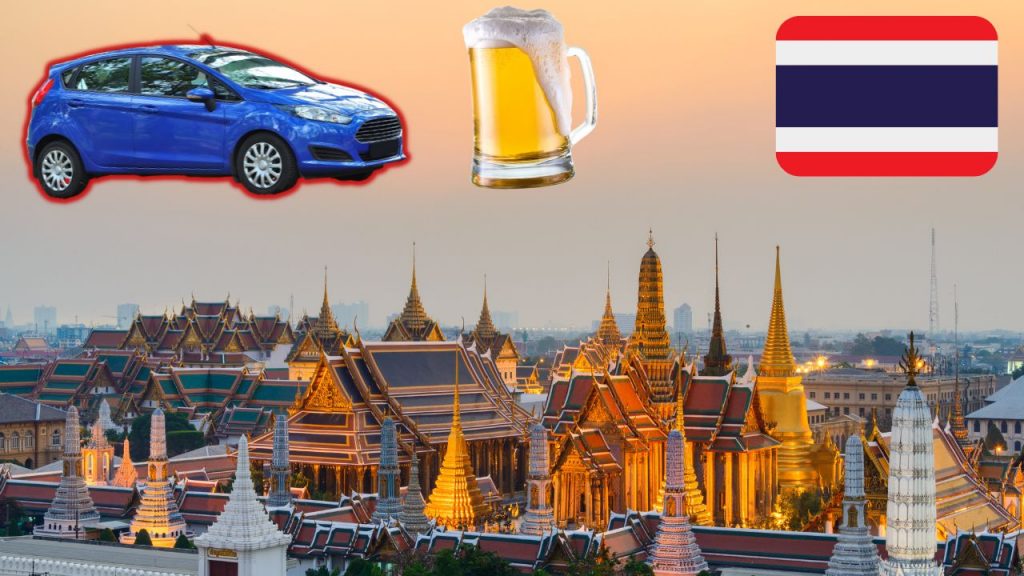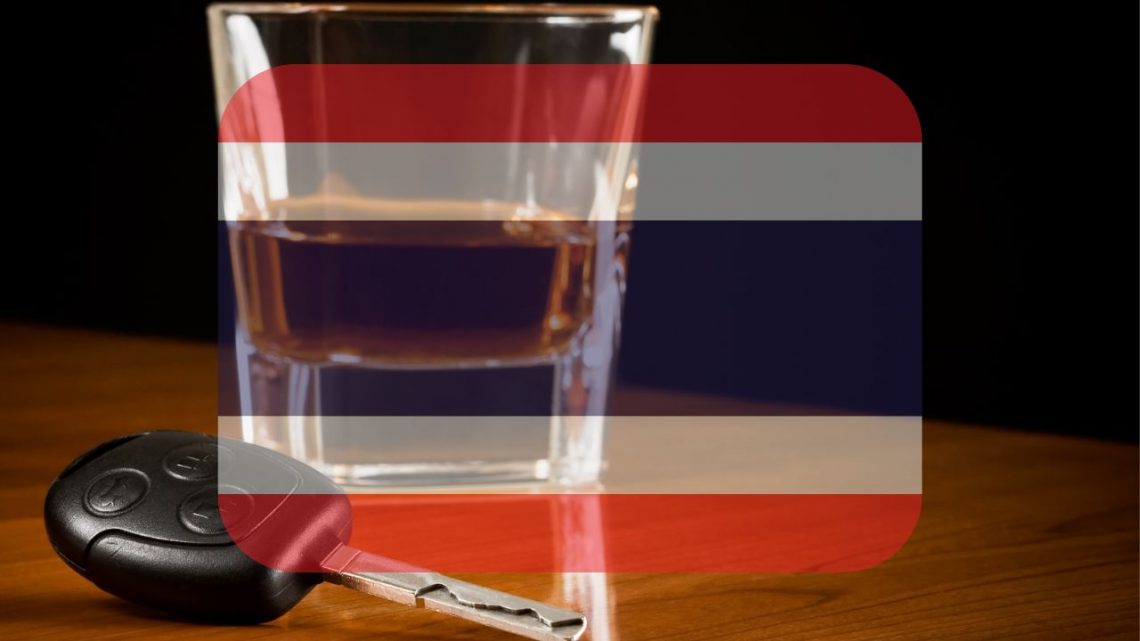The legal restriction in Thailand is in place regarding blood alcohol concentration (BAC), set at 0.05% (50 mg of alcohol per 100 ml of blood). Generally, consuming two regular alcoholic drinks usually results in reaching this particular limit. Nevertheless, there are variances among individuals in how alcohol affects their BAC, even when consuming identical quantities. Factors such as alcohol metabolism within the body can contribute to differences in BAC levels.
This article seeks to provide information and create awareness about drunk driving in Thailand. This website’s information does not support or encourage impaired driving in any area or country. We highly encourage making responsible decisions and prioritizing one’s own and others’ safety while driving.
Thailand is ranked 9th by the World Health Organization (WHO) in terms of having the highest road traffic death rate, with 32.7 deaths per 100,000 population in 2018. Year after year, the number of road traffic accident fatalities has consistently remained around 20,000 or more.
The primary causes of these accidents are attributed to motorcyclists neglecting to wear helmets, individuals driving under the influence of alcohol, and excessive speeding. These three risky behaviors, often occurring together, pose significant dangers to drivers and passengers and pedestrians, cyclists, and other individuals using the roads.
Drivers should not operate a car after consuming alcohol. However, if driving after drinking is unavoidable, we strongly advise selecting safer transportation options such as authorized driving services or taxis.
Before visiting any country, individuals should familiarize themselves with the legislation about driving under the influence of the country they are visiting. Using a breathalyzer to measure one’s blood alcohol level regularly might help ensure adherence to the legal limits when driving.
We recommend you consult the country’s official website for more extensive information about drunk driving in Thailand.
Legal Alcohol Limit When Driving in Thailand
Alcohol consumption can create a false sense of confidence and promote irresponsible behavior, posing a significant hazard to road safety. As mentioned earlier, individuals may exhibit different reactions to alcohol. Even if someone’s alcohol level falls below the legal limit in Thailand, they may still exhibit signs of intoxication.
There are various factors that can influence an individual’s alcohol level, including:
- Gender.
- Weight.
- Quantity of alcohol consumed.
- Duration of alcohol consumption.
- Consumption of food.
- Level of physical fitness.
- Liver condition.
- Use of medications.
Even if a person subjectively feels sober, alcohol consumption can still impair their driving ability. In some cases, the adverse effects of alcohol on driving skills may not become apparent until the person is already operating a vehicle in Thailand.
BAC calculators and charts can be used to estimate permissible alcohol consumption before driving. However, because alcohol affects individuals differently, these methods may not be applicable to everyone.
To obtain a more accurate measurement of alcohol levels, it is recommended to use a certified alcohol breathalyzer. This device provides a more precise assessment of an individual’s alcohol level.
Punishments for Drinking and Driving in Thailand
Consuming just one bottle of beer can already have an effect on your driving skills. As your blood alcohol concentration increases, these impairments become more apparent. Your coordination and decision-making abilities can be compromised even at BAC levels as low as 0.010% to 0.029%.
Drivers must understand that laws and penalties regarding drunk driving can differ from country to country. Knowing the consequences of exceeding the legal BAC limit is also essential.
Violating drunk driving laws can result in fines and other penalties. As per Thailand’s law, operating a motor vehicle is prohibited for individuals with a blood-alcohol content exceeding 0.05% or 50 mg/100 ml. For drivers under 20 years old or holding a temporary driver’s license, the threshold is set at 0.020% or 20 mg/100 ml.
Exceeding these BAC limits is considered intoxication under the law. Here are the penalties for driving under the influence in Thailand:
- Jail Time: Not exceeding one (1) year of imprisonment
- Fines: 5,000 to 20,000
- License suspension or revocation: Up to six (6) months of suspension or revocation of driver’s license.
How Many Bottles of Beer Can You Drink and Drive in Thailand?

Body weight is one factor in determining an individual’s blood alcohol concentration. BAC charts indicate that individuals with lower body weights generally have higher BAC levels.
For instance, a man weighing 160 pounds (72 kg) who consumes a 12-ounce (350 ml) beer may reach a BAC level of approximately 0.02%. On the other hand, a woman of similar weight may have a BAC of around 0.03% after consuming the same amount of beer. This comparison highlights the impact of gender on the body’s metabolism of alcohol.
If you plan to drive after consuming alcohol, we recommend limiting your alcohol intake to one or two beers.
How Many Wine Glasses Can You Drink and Drive in Thailand?
Limiting your wine consumption to one or two glasses is advisable, considering that a standard serving of wine is usually around 142 milliliters (5 ounces) and has an alcohol by volume (ABV) of 12%.
How Many Whiskey or Vodka Shots Can You Drink and Drive in Thailand?
We recommend limiting your consumption of distilled spirits, such as whiskey and vodka, to one or two shots. Typically, these spirits have an alcohol by volume of 40%.
Sticking to Drink and Drive Laws in Thailand
Alcohol consumption can harm a driver’s abilities, posing a significant hazard to road safety. Drivers must be careful and aware of the hazards associated with drunk driving.
Drivers need to adhere to Thailand’s legal blood alcohol concentration limit of 0.05% to prioritize the safety of all motorists. It is recommended to regularly monitor one’s BAC, even after consuming a small amount of alcohol, by using a certified alcohol breathalyzer for precise measurements.
If there is any uncertainty about one’s ability to drive safely, it is highly advisable to consider alternative transportation options to ensure the well-being of oneself and others.
Please visit Thailand’s official website for more comprehensive information about drunk driving.


